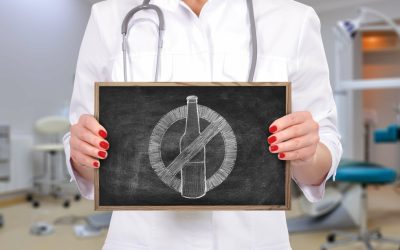Alcohol and Anxiety: Causes, Risks and Treatment
Individuals with alcohol use disorder (AUD) or a history of alcohol dependence are also more likely to experience anxiety during withdrawal. Chronic illnesses, such as liver disease or cardiovascular conditions, can interact with alcohol use to worsen anxiety symptoms. If you struggle with severe anxiety, alcohol use disorder (AUD), or both, Charlie Health can help. Our compassionate clinicians meet you where you are on your recovery journey.
- The Australian guidelines recommend having no more than ten standard drinks per week and no more than four standard drinks on any one day.
- Your regret from something that happened last night or something that worries you about the future could be significantly exacerbated by the chemical reactions in your brain, causing you to feel anxious.
- Understanding the effects of alcohol on anxiety is crucial for breaking this cycle and finding healthier, long-term solutions for managing stress and anxiety.
- If you feel like hangxiety is getting in the way of your life or mental health, it might be helpful to talk to a healthcare professional.
Why Do You Feel Anxiety After Drinking Alcohol?

However, with the right treatment plan, including medications, home remedies, and lifestyle changes, it is possible to manage and reduce anxiety symptoms effectively. Trembling, or tremors, occur in 30-50% of individuals with alcohol-induced anxiety disorder. Tremors are involuntary muscle movements, often affecting the hands but can also occur in other parts of the body. This symptom is most common during alcohol withdrawal, as the nervous system becomes hyperactive in response to the sudden absence of alcohol. Sleep disturbances, including insomnia and poor sleep quality, affect 60-80% of individuals with alcohol-induced anxiety disorder. While alcohol initially acts as a sedative, helping people fall asleep faster, it disrupts the sleep cycle, particularly REM sleep, leading to fragmented and non-restorative sleep.
Links to NCBI Databases
We also tested the ‘direction of causation’ models with the repeated lifetime assessments of other anxiety disorders and AUD. In the model with shared risk factors, the genetic correlation between other anxiety disorders and AUD was 0.66 (95% CI, 0.44, 0.88) and the environmental correlation 0.05 (95% CI −0.26, 0.30). Because both phenotypes are influenced by environmental factors, the lack of environmental association makes causal model less plausible.
You can also enjoy non-alcoholic beers or wines, or make mocktails such as Virgin Mojitos or Cranberry Spritzers. These statistics show how widespread caffeine consumption is across different age groups in the US. Dehydration and disrupted sleep play a large part in the pounding headaches and nausea many of us know too well after a big night out.
Signs That Alcohol Might Be Worsening Your Anxiety Include:
Caffeine and alcohol are everywhere, but they might be causing more harm than you think. For some, a hangover is simply a matter of how much they drank or how hydrated they are. Research shows your genes can explain almost half the reason why you wake up feeling hungover, while your friend might not. Together, this interaction affects your mood, emotions https://nestdeaddictioncenter.com/alcoholic-cardiomyopathy-causes-symptoms-and/ and alertness.
20% of people diagnosed with an alcohol or substance use disorder also suffer from an anxiety or mood disorder. Anxiety is a disorder that preys on the central nervous system, or CNS. It can accelerate the heart rate, increase blood flow, and push the brain into overdrive. In cases of extreme anxiety that need to be medically treated, doctors will typically prescribe benzodiazepines, as they are CNS depressants. However, the effects that make benzodiazepines useful in these diagnoses are the same effects many experience with alcohol. If you suspect that alcoholism treatment you have an alcohol use problem, effective treatments are available.
Risk Factors for Developing Both Anxiety and Alcohol Issues
It also is important to note that reliance on timeframes, although useful, could mask an independent course of anxiety symptoms among individuals who also have an AUD. For example, it is possible that an anxiety disorder which appears at a time when the person is experiencing alcohol-related problems may have an etiology separate from alcohol use. Evidence for the substance-induced hypothesis comes from multiple sources. A central prediction of this causal model is that abstinence from alcohol should be followed closely by a conspicuous decrement in anxiety symptoms. Data from a study of 53 patients who participated in alcohol treatment at a residential substance abuse program were consistent with this prediction (Kushner et al. 2005). Thus, among those 23 patients who had an anxiety disorder at baseline and remained abstinent after approximately 120 days, 61 percent no longer met criteria for an anxiety disorder at follow-up.
Does Drinking Alcohol Cause Anxiety?
- Monument’s diverse support groups cater to various needs, such as gender-specific challenges, mindfulness practices, and coping with anxiety related to substance use.
- Several separate lines of evidence cast doubt on the possibility that high proportions of alcoholics have severe, long-term depressive or anxiety disorders.
- The above-mentioned studies provide less evidence for a direct effect from AUD to SAD (Buckner & Turner, 2009; Dahne et al., 2014; Wolitzky-Taylor et al., 2012).
- This misunderstanding can lead to intense fear, tightness in the chest, and shortness of breath, which are signs of panic attacks.
Your treatment team can help you determine the most effective path toward getting—and staying—well. Model fit indices from biometric structural equation modelling of social anxiety disorder (SAD), other lifetime anxiety disorders (AnxIRT), and alcohol use disorder (AUD) occurring the last five years. If you do not like how you feel the day after drinking or rely on alcohol to handle less anxiety in various situations, seriously consider reducing your alcohol consumption. The pressure after the occasional beer or glass of wine can be manageable, but sometimes-serious anxiety attacks after nights of heavy drinking can affect your quality of life. Another study further highlights that heavy alcohol use affects multiple cognitive domains, including problem-solving, attention, and mental flexibility.
Understanding Schizoaffective Disorder Treatment
- If you’re struggling with anxiety and alcohol addiction, a treatment center can help you uncover the cause of both conditions and make a plan to address them.
- This implies a “common pathway” between phenotypes rather than independent genetic and environmental pathways (Turkheimer, Pettersson, & Horn, 2014).
- By delving deeper into the mechanisms behind these interactions, individuals can gain insight into how alcohol affects their mental well-being and make informed choices regarding their alcohol consumption habits.
- Participating in support groups, 12-step facilitation groups, couples therapy, and family therapy is typically recommended.
These allostatic adaptations in the brain lead to the second stage of addiction—withdrawal/negative affect. In this stage, reward circuits become does alcohol give you anxiety blunted because of within-system neuroadaptations. The brain’s stress systems, including corticotropin releasing factor and norepinephrine in the central amygdala and bed nucleus of the stria terminalis, become increasingly dysregulated because of between-system compensatory neuroadaptations. At this point in the addiction process, subjective negative affect predominates, especially during periods of sobriety and withdrawal.

Co-occurring disorders: Anxiety and Alcoholism
Up to 80% of individuals with prolonged heavy drinking exhibit cognitive impairments, which can worsen anxiety symptoms due to disrupted brain function. Ongoing alcohol use lowers your brain’s dopamine, impacting your ability to enjoy life. It also affects the brain’s GABA receptors, which puts you in a constant state of tension. Lower enjoyment and chronic stress lead to other mental health conditions, such as depression. Alcohol use and anxiety compound with these comorbid disorders worsening each other. The psychiatric, psychological, and neuroscientific disciplines have developed theories to explain the association between alcohol and anxiety disorders.
This overstimulation can trigger panic attacks or intense anxiety, especially if you already struggle with an anxiety disorder. When anxiety gets intense, it’s natural to want relief fast—and for many, that means reaching for a drink. At first, it might feel like alcohol helps you calm down, quiet your thoughts, or make things feel more manageable.

